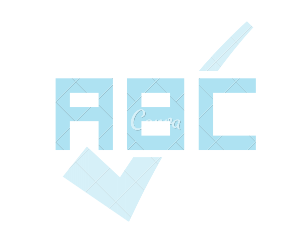When someone applies for a scholarship at an education institute, there are different things that they have to send with the application. There’s the application itself, the concomitant documents, and the scholarship essay.

The purpose of the scholarship essay is to provide an elaboration about the applicant and the viability of their candidacy for the scholarship. In less wordy terms, that means that the essay serves to tell why the applicant is deserving of the scholarship.
Naturally, since the essay has to perform such a function, it is important for it to be written in an engaging and persuasive way. In this article, we are going to be looking at some tips that you can follow when writing your scholarship essay to ensure that it comes out that way.
Do your research about the institute
Many times, people can send in a template or a pre-made essay just by changing the names, such as the applicant’s name, etc. In these types of essays, there is usually no reference to the institute. They are typically about how the applicant is this and that.
These types of essays aren’t persuasive. They are not even engaging to begin with.
What you need to do here is start by doing some research on the institute and the programs that you are applying to, etc. You can even go as far as to find out the names of the people on the scholarship committee and refer to them directly in your essay.

When you do your research and when you utilize said research when writing the essay, it shows that you’ve put in considerable effort. This, in itself, becomes a persuasive factor.
To sum it up, here are some of the things that you should do with the research:
- Refer to the institute by name when writing the essay
- Explain your suitability with regard to the particular criteria of the institute/program that you’re applying to
- If possible, refer to the head of the scholarship committee by their name at the start or end
Maintain a professional tone
You have to maintain a professional tone when writing anything academic. The same goes for scholarship essays.
A professional tone makes you sound formal and professional – and that is what makes your essay engaging to read. Using slang or any other form of informal language in your essay would make it look non-serious at best and a prank at worst.

Here are some things that you can do to keep your tone professional:
- Avoid using slang of any sort in your essay
- Avoid using contractions (such as “I’ve” instead of “I have”)
- Avoid using SMS language in any way
When we say “SMS” language, we basically refer to the somewhat accepted shortened forms of words like “intro” or “tv” instead of “introduction” or “television.”
Keep the essay readable
Arguably, academic content is one of the places where you can let loose with your complex vocabulary and smart words. However, even then, you have to ensure that the essay you write is readable and easy to comprehend.
This can make your essay persuasive and engaging.

Here are some tips that you can follow to make your essay readable:
- Keep your sentences short. The length of your sentences should be 20 words at the most. Anything beyond this becomes too convoluted.
- Barring the occasional violation, try and use easy wording in your essay. You should avoid using words that aren’t used in normal conversations and written documents.
- Keep the essay properly segmented. By dividing the essay properly into sections and paragraphs, you can make it easy for the reader to go through it.
A lot of times, the lack of readability in your essay only becomes apparent once you are done with the first draft. In these situations, you can fix the parts with bad readability by simply doing some paraphrasing.
For example, if you find that some parts of the essay contain some really difficult words, you can paraphrase those particular parts. You can specifically change the difficult words with easier synonyms.
If you are a little short on time, you can also try using an online paraphrasing tool instead of doing it manually. You just have to make sure that you pick a good one so that there are no issues with the provided outputs.
Keep your essay grammatically perfect
Grammar errors and spelling mistakes are some of the things that can very easily make your essay less persuasive and engaging. You need to ensure that there are none in your essay before you send it in for submission.

Finding and removing grammar and spelling errors is simple and easy. There are two main ways in which you can do it, similar to how we talked about paraphrasing above.
- The traditional and conventional way of removing grammar and spelling errors is to simply read your essay a couple of times, find the errors, and resolve them manually. This takes time, but it is thorough. (A good tip to keep in mind about reading your essay for errors is to do it a little time after writing it. This helps you be more objective.)
- The quicker and more modern way of doing the same thing is to use an online grammar-checking tool instead. Online grammar checkers take a fraction of the time as the normal proofreading method, but they are not as thorough. In other words, they can point out “errors” that are not actually errors and skip errors that are actually errors.
The ideal approach – in which you can get the best of both worlds – is to do the proofreading first, then use a tool, followed by another round of proofreading.
Conclusion
It’s not difficult to come up with a persuasive and engaging essay if you know what to do. In the post above, we’ve comprehensively covered some of the main things that you have to be careful about in this regard.

